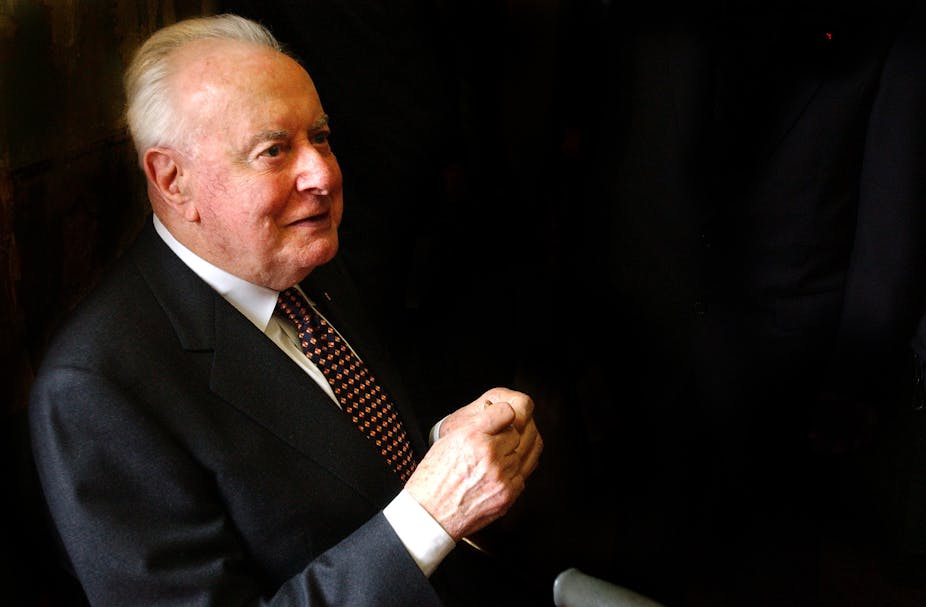by JOHN PILGER

The Australian High Court has ruled that correspondence between the
Queen and the Governor-General of Australia, her viceroy in the former
British colony, is no longer “personal” and the property of Buckingham
Palace. Why does this matter?
Secret letters written in 1975
by the Queen and her man in Canberra, Sir John Kerr, can now be released
by the National Archives – if the Australian establishment allows it.
On November 11, 1975, Kerr infamously sacked the reformist government of
prime minister Gough Whitlam, and delivered Australia into the hands of
the United States.
Today, Australia is a vassal state bar
none: its politics, intelligence agencies, military and much of its
media are integrated into Washington’s “sphere of dominance” and war
plans. In Donald Trump’s current provocations of China, the US bases in
Australia are described as the “tip of the spear”.
There is an
historical amnesia among Australia’s polite society about the
catastrophic events of 1975. An Anglo-American coup overthrew a
democratically elected ally in a demeaning scandal in which sections of
the Australian elite colluded. This is largely unmentionable. The
stamina and achievement of the Australian historian Jenny Hocking in
forcing the High Court’s decision are exceptional.
Gough
Whitlam was driven from government on Remembrance Day, 1975. When he
died six years ago, his achievements were recognised, if grudgingly, his
mistakes noted in false sorrow. The truth of the coup against him, it
was hoped, would be buried with him.
During the Whitlam years,
1972-75, Australia briefly achieved independence and became intolerably
progressive. Politically, it was an astonishing period. An American
commentator wrote that no country had “reversed its posture in
international affairs so totally without going through a domestic
revolution”.
The last Australian troops were ordered home from
their mercenary service to the American assault on Vietnam. Whitlam’s
ministers publicly condemned US barbarities as “mass murder” and the
crimes of “maniacs”. The Nixon administration was corrupt, said the
Deputy Prime Minister, Jim Cairns, and called for a boycott of American
trade. In response, Australian dockers refused to unload American ships.
Whitlam
moved Australia towards the Non-Aligned Movement and called for a Zone
of Peace in the Indian ocean, which the US and Britain opposed. He
demanded France cease its nuclear testing in the Pacific. In the UN,
Australia spoke up for the Palestinians. Refugees fleeing the
CIA-engineered coup in Chile were welcomed into Australia: an irony I
know that Whitlam later savoured.
Although not regarded as on
the left of the Labor Party, Gough Whitlam was a maverick social
democrat of principle, pride and propriety. He believed that a foreign
power should not control his country’s resources and dictate its
economic and foreign policies. He proposed to “buy back the farm”.
In
drafting the first Aboriginal lands rights legislation and supporting
Aboriginal strikers, his government raised the ghost of the greatest
land grab in human history, Britain’s colonisation of Australia, and the
question of who owned the island-continent’s vast natural wealth.
At
home, equal pay for women, free universal higher education and support
for the arts became law. There was a sense of real urgency, as if
political time was already running out.
Latin Americans will
recognise the audacity and danger of such a “breaking free” in a country
whose establishment was welded to great, external power. Australians
had served every British imperial adventure since the Boxer rebellion
was crushed in China. In the 1960s, Australia pleaded to join the US in
its invasion of Vietnam, then provided “black teams” for the CIA.
Whitlam’s enemies gathered. US diplomatic cables published in 2013 by WikiLeaks disclose the names of leading figures in both main parties, including a future prime minister and foreign minister, as Washington’s informants during the Whitlam years.
John Pilger for more
